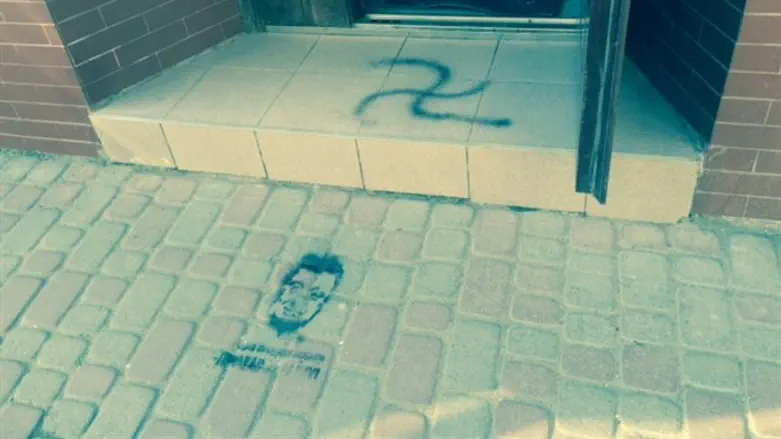
A Jewish cemetery was vandalized in a village in the Czech Republic, where unidentified perpetrators smashed at least one headstone and etched obscene drawing on several others, JTA reported Friday.
Police have no suspects in custody in connection with last week’s incident in Osoblaha in a northeastern district of the Central European country, according to the report.
In addition to toppling and smashing at least one headstone, the perpetrators also drew male genitals on one headstone and a smiley face on another, the Coordination Forum For Countering Antisemitism reported on its website Wednesday.
Anti-Semitic violence and vandalism is commonplace across Eastern Europe but relatively rare in the Czech Republic, though the Jewish community in the Czech Republic recently released a report which found an increase in the number of anti-Semitic incidents in the country last year.
The report found there were 347 anti-Semitic attacks in 2018, up by 221 from 2015 when the last equivalent report was published.
Still, the Federation of the Jewish Communities noted in the report that the Czech Republic remains a safe country for Jews and anti-Semitism is at a relatively low level compared with other European countries.
The lower house of the Czech Parliament earlier this year recognized the International Holocaust Remembrance Alliance (IHRA) definition of anti-Semitism.
The definition includes classic forms of anti-Semitism, but also offers examples of modern manifestations, such as targeting all Jews as a proxy for Israel, denying Jews the right to a homeland and using historical anti-Semitic images to tarnish all Israelis.
(Arutz Sheva’s North American desk is keeping you updated until the start of Shabbat in New York. The time posted automatically on all Arutz Sheva articles, however, is Israeli time.)